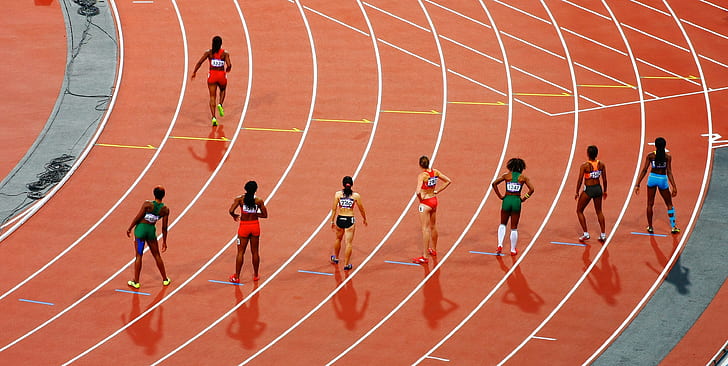Start strong, write well, finish strong; Serialized Ferris; AI predicts bestsellers: Newsletter 22 January 2025

Newsletter 78: How to be nice to yourself while writing a book, un-weaponizing free speech; book sales creep upward, plus three people to follow and three books to read.
When it comes to books, concentration matters from start to finish
The best part of writing books, for most people, is the writing. When they’re writing, they think they’re making progress. But writing isn’t usually the start of the process, it’s the middle. And if you start in the middle, you’ll end up in a swamp, wondering how you go there.
Instead, think of the creating a book as a process with three big elements:
- At the start, you work on ideas, content, audience, and plans. You end up with a detailed table of contents that become your plan of attack.
- In the middle, you conduct research and draft and rewrite chapters.
- At the end, you pull it all together, make it complete and consistent, and maintain attention as the book goes through production (that is, turning the manuscript into a finished book).
The reason to concentrate hard at all three stages is simple: working a little harder now means a whole lot less pain later. You’re basically doing your future self a favor.
In the planning stage, you’re defining your audience and identifying a unique way of talking about your idea. You’re also making a table of contents that can become a work plan. For each chapter, you’re identifying the question it answers for the reader, as well as the pieces of supporting content — frameworks, case studies, data, other people’s published research — that you can use the prove the truth of the idea.
Do this right, and you create a well-defined path for your future self, the writer, to follow. Fail to concentrate on it, and your future writer self will not know what to research and what to write. That’s hell. Don’t condemn your future writer self to hell.
In the research and writing stage, you’re assembling content and turning it into chapters. Because your past self created a roadmap, you know how everything fits together. But it’s still easy to leave holes and messy organizational issues to be dealt with later. It’s easier if you start with a fat outline before writing. But your chapter isn’t done until you’ve completed every part of it. If you’re tempted to leave it a bit messy, think of your future self that’s going to need to assemble the manuscript, likely under deadline pressure. Don’t make that future self’s job harder by failing to do all the content work now. (And yes, that includes the URLs that will become your footnotes.)
In the assembly stage, you’ve got a lot to worry about. Consistency. Duplicated stories and proof points. Dealing with copy edits. Managing page layout. Getting endorsements and getting the cover text settled. That’s a lot of work. You can succeed — and do it by the deadline — provided your past writer self didn’t leave a bunch of details hanging.
Unless you want to experience deep regrets, maintain concentration at the beginning, middle, and end. Do it for your future self, so you don’t need to curse the sloppy planner and writer who left you a mess to deal with. If you don’t cut corners, writing a book can be joyous. Concentrate now to make the future you a happy author.
News for writers and others who think
Outgoing FCC chair Jessica Rosenworcel dismissed petitions that accused TV stations of partisan activity. “What [these petitions] share is that they seek to weaponize the licensing authority of the FCC in a way that is fundamentally at odds with the First Amendment. To do so would set a dangerous precedent,” she wrote.
John A. DeMato takes boudoir photos of books. You know, to make them look sexy on your web site and in presentations. You know you’re in love with you book, why not show the rest of the world how beautiful it can be?
According to Circana Bookscan, print book unit sales were up 1% for the full year 2024, the first increase in years. But adult nonfiction sales were down 0.5%, to 292 million units.
The Four-Hour Work Week author Tim Ferriss will release his next book, The No Book, a few chapters at a time. You can read more and subscribe to it here.
Will AI predict bestsellers? I wonder, when the best books don’t follow patterns, they break them.
Three people to follow
Bruce Grant, pharmaceutical business strategist
Irena Cronin, evangelist for the age of spatial computing
Katie Markwell, head of consulting and managing director of management consulting firm Randstad Digital
Three books to read
Unsettled: What Climate Science Tells Us, What It Doesn’t, and Why It Matters by Steven E. Koonin (BenBella, 2024, revised and expanded edition). The truth about climate science at a crucial moment for our planet.
Hidden Potential: The Science of Achieving Greater Things by Adam Grant (Viking, 2023). Bestselling big thinker reveals how success comes from how you learn, not how hard you work.
Weapons of Math Destruction: How Big Data Increases Inequality and Threatens Democracy by Cathy O’Neil (Crown, 2017). Worth another look in the age of AI.
I like this – “concentration matters” in all aspects of writing a book. It’s a great guide in a nutshell. Obviously, one needs to go beyond the nutshell stage to achieve the project, but a nutshell can be very inspirational to the newbie or wannabe who is looking around for where to go, how to start. No doubt this is helpful, too, for writers who have written books, but who muddled through, having begun in the middle. (I’ve been there …)